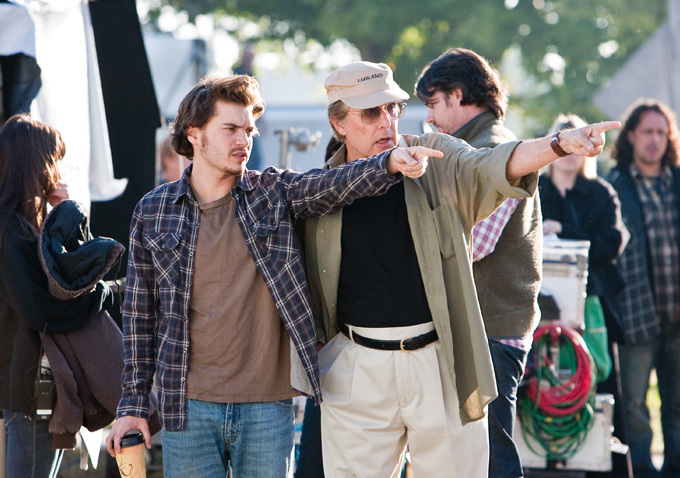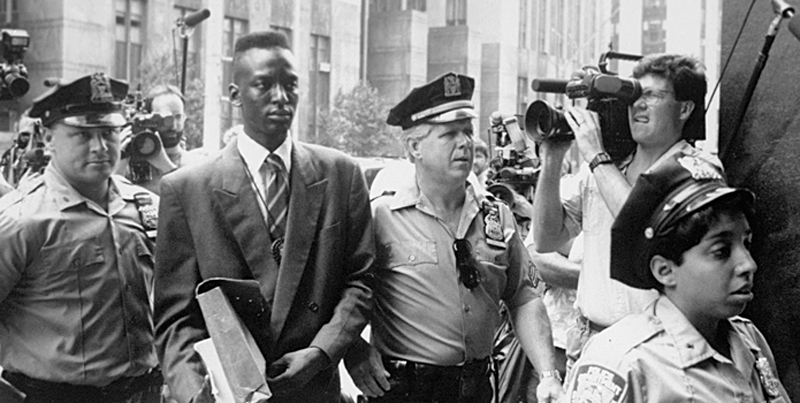“I’ll just tell you straight out, Killer Joe is the most disturbing film I’ve ever made,” William Friedkin admits. This is really something, coming from a filmmaker who has spent much of an eclectic career testing audience limits. The Exorcist riled Catholics and had theaters stocking barf bags in 1973; Cruising, the 1980 Al Pacino thriller that takes place amid the Manhattan s/m scene, outraged the gay community; and Bug (2006) is one of the most visceral, psychologically intense films in recent memory. “I’m always trying to push the envelope. It’s hard to define ‘the envelope,’ but that’s what I want from a film—to take me to places I haven’t been before.”
Friedkin’s career as a director, screenwriter, and controversialist is marked by influential hits (The Exorcist), accolades (including the 1971 Oscar for Best Director for The French Connection and the 2006 Cannes film critics’ prize for Bug), and sleepers that have matured into classics (Sorcerer). After Bug, Killer Joe is his second collaboration with Pulitzer Prize–winning playwright Tracy Letts. Where Bug was a queasy close-up of the psychopathology of paranoia, Killer Joe is rollicking, unhinged trash-noir.
“I’m not always able to find a piece of material that satisfies that need or urge,” he says. “Yes, it is a need that I have, to not make a placid, sentimental film.”
The biting energy of Killer Joe, the efficiency of its film craft, and the sharpness of its performances are reflective of a man whose love of filmmaking hasn’t flagged in the five decades since his debut, the documentary The People vs. Paul Crump. He evinces that vigor in person as well. He’s a great talker with an ear for anecdote, such as the one about Peter Bogdanovich’s attempt to make Killer Joe. “Peter had Jeff Bridges, who was going to play Joe,” Friedkin says. “And they couldn’t set it up. Jeff Bridges finally withdrew, having said that his wife told him that if he did this role, she’d leave him.”
The film was independently financed and shot in 20 days in Louisiana, a long way from the Hollywood system Friedkin says he’s no longer interested in. “The films just aren’t for me—comic book characters, video games, idiotic rom-coms. [They’re] for millions of people, but they aren’t for me, that’s all.”
But outside the studios, he adds, opportunities for filmmakers are more plentiful than ever, and there are clear and abundant signs of life within the independent community. “Watch what happens with a film like Beasts of the Southern Wild,” he says. “That’s going to be nominated for and possibly win a number of Academy Awards. It was made for no money in Louisiana by a new group of filmmakers. You had The Hurt Locker a couple of years ago destroying Avatar at the Academy Awards. Then you had The King’s Speech and The Artist destroying all the Hollywood crap.”
Although Friedkin is always on the prowl for material that excites his creative instincts, his next project requires him to look back: his autobiography, due out next spring. “I wrote it in longhand,” he says. “My model is—and I fall far short of it, I will admit—is Elia Kazan’s book, A Life, which is the best autobiography of a filmmaker I’ve ever read.”
He is also embroiled in a dispute with Universal and Paramount over the rights to his resurgent 1977 film Sorcerer, a remake of Henri-Georges Clouzot’s The Wages of Fear. After Paramount struck a new print for a screening early last year at the American Cinematheque Los Angeles, neither studio has acknowledged ownership. “Everybody that’s tried to get it has gotten a letter from both studios saying, ‘We don’t own it, and we don’t know who does,’” Friedkin says. “All I’m asking in return is to let me take the film to someone who wants to put it out there,” he says, hopeful that the Sorcerer imbroglio is resolved at a settlement conference scheduled for November.
He goes on to explain that “there are hundreds of films that fall into this category, if not thousands,” with arcane rights issues cropping up on a regular basis, even with well-known films, such as Blade Runner.
“You can’t get [a print of] Blade Runner from Warner Bros.,” he says emphatically. “They will tell you they don’t know who owns it. I know who owns it. It’s a friend of mine, a guy named Bud Yorkin. Bud Yorkin and his partner Jerry Perenchio put up the completion bond on Blade Runner. And Yorkin and Perenchio wound up with all the subsidiary rights. So when Lincoln Center requested a print of it, they got [a] letter from Warner Bros.: ‘We don’t know who owns it.’”
“This is going on constantly,” Friedkin continues. “And the only way to resolve it is through the legal system. Because at the studios now, you have a bunch of young lawyers who have no idea of the legacy of their companies or of the origins of the films that made the companies or anything else. They’re just legal house cleaners who have no idea where the files are or what’s in the files.”
Facing such Orwellian business in Hollywood, it’s no wonder Friedkin has struck out on his own. “The films that we made in the ’70s were for me,” he says. “Today, I’m at odds with the zeitgeist—very much at odds with it.”





